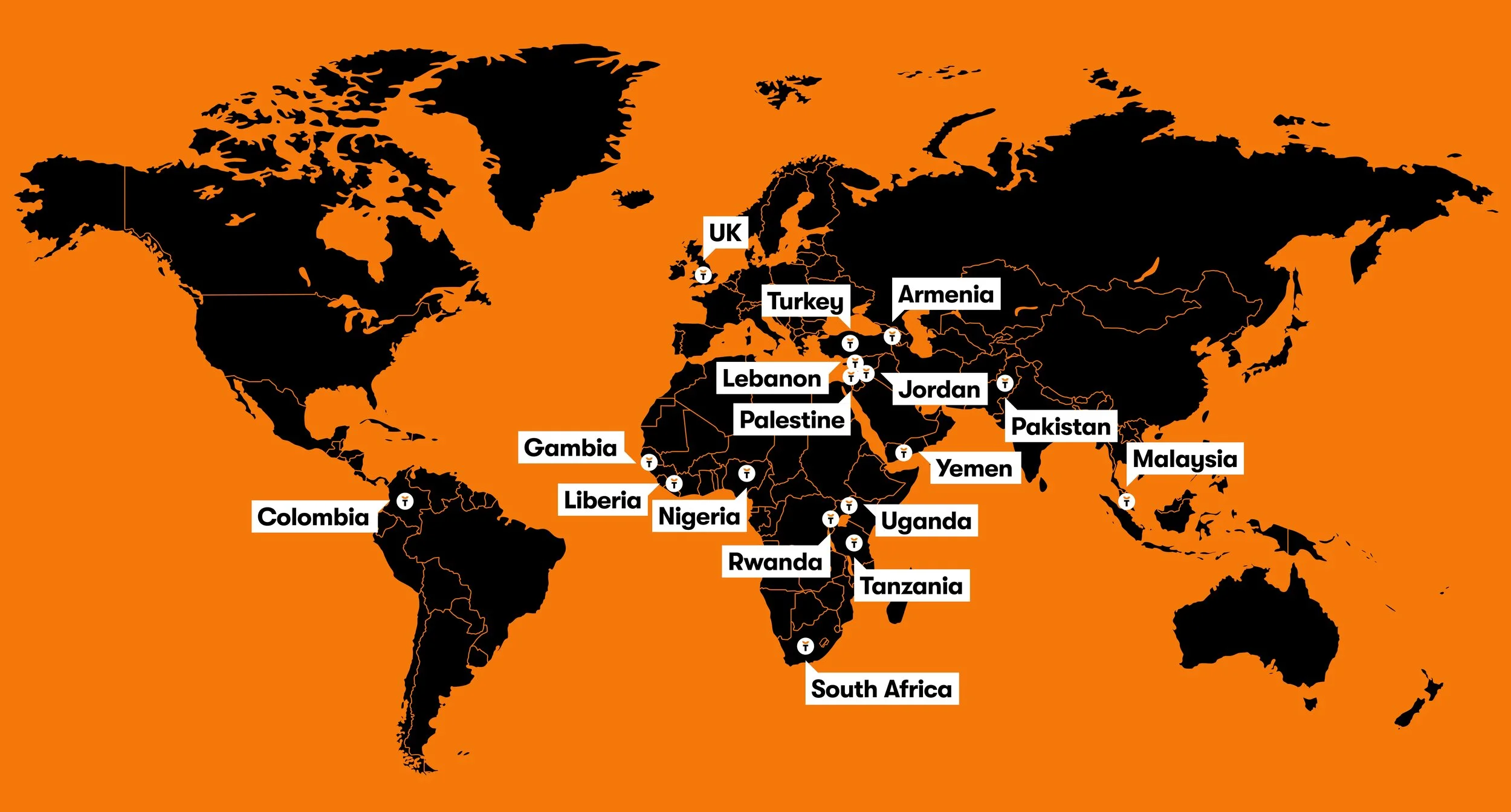
Where we work
Uganda
Uganda
Uganda has experienced almost continuous conflict since independence, through the regime of Idi Amin until the mid 1980s, when President Museveni came to power
People in the north especially are still living with the consequences of frequent attacks by the Lord’s Resistance Army which only ceased in 2006
Uganda is now the centre of the world’s fastest growing refugee crisis. In the past 12 months the central African nation has taken in around 1.5 million people — more than Greece, Turkey or any other country in the world at the height of last year’s crisis in Europe.
Every day around 2,000 people stream across Uganda’s borders fleeing famine, drought and violence in neighbouring countries, including nearly a million from South Sudan.
Refugee and returnee children
UNHCR data tells us that Uganda now has over 1.5 million refugees, of which a very large number are children. The three main population groups are from South Sudan, the DRC and Somalia. Nearly two-thirds have arrived within the past five years in successive waves of refugee influxes that have followed periods of conflict and insecurity in neighbouring countries. In addition, rebel activity by the Lord’s Resistance Army killed and displaced many thousands of people in northern Uganda. Since the LRA’s departure in 2006, many former abducted child soldiers have returned to their home communities. Some of them are girls held as ‘wives’ of rebel soldiers, and who now have children of their own. There are very high levels of complex trauma among both refugee and returnee groups of children and young people across Uganda.
Our work
CATT TRAINING
Over the past ten years we have run 11 full CATT courses in Uganda and have over 150 counsellors across the entire country, and 12 Ugandan trainers. They work for local mental health teams, in refugees camps and for NGOs both large and small, including the International Rescue Committee. We are especially proud of our ongoing work with UK charity Christian Relief and Education for South Sudan (CRESS) which has set up a specialist child trauma team and treated over 600 children living in refugee settlements in the West Nile region using CATT.
MENTAL HEALTH LINK WITH BUTABIKA HOSPITAL, KAMPALA
Since 2012 we have worked in worked in partnership with East London NHS Foundation Trust on its mental health Link with Butabika National referral Hospital, Kampala and mental health services across Uganda. CATT is now an established part of the trauma module for the CAMHS Diploma accredited by the Mbarara University of Science and Technology.
FRIENDS OF BUTABIKA CHILDREN’S WARD
In June 2013 the ‘Friends of Butabika Children’s Ward’ project was set up in response to concerns raised about the care and treatment of child patients at Butabika Hospital. This became our first children’s rights project, aiming to support the ongoing efforts of Ugandan professionals to promote changes in cultural attitudes and provide high quality care and treatment in the context of severe material limitations and very low staffing levels. The project promotes good safeguarding practice and funds a trained volunteer to work on the ward for four days per week, providing the children with recreational, educational and therapeutic activities.
The objectives of the Friends are:
To finds ways to improve, promote and monitor observance of the rights of children who are patients on the children’s ward of Butabika Hospital
To improve the relationships and living conditions of children who are patients on the children’s ward of Butabika Hospital
To raise and provide funds which will further the achievement of objectives 1 and 2
BISHOP ASILI COMMUNITY DEVELOPMENT FOUNDATION, LIRA
Bishop Asili Community Development Foundation in Lira, northern Uganda, supports several hundred women and children who have been affected by the Lord’s Resistance Army. In 2006 UNICEF estimated that it had abducted at least 25,000 children since the conflict began in the early 1990s. Many local people lost family members in attacks, are themselves the victims of rape and violence, or are returned captives. Most recently, the Foundation has been helping more than 50 trafficked children to resettle into local communities. The Foundation provides vocational training as well as psychological counselling and mental health education. Sister Florence Achulo is the Director, and she is a qualified psychologist who has treated many children using CATT since her training at Butabika Hospital in September 2013. However, Lira is largely by-passed by aid agencies and Sister Florence struggles to attract funding for the Foundation, so supporting it is one of our special projects. In recent years we have begun using the Foundation’s hall as a community training centre for PTSD awareness, which brings it some additional income.
